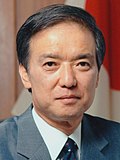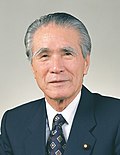This article needs additional citations for verification .(August 2016) |
| |||||||||||||||||||||||||||||||||||||||||||||||||||||||||||||||||||||||||||||||||||||||||
126 of the 252 seats in the House of Councillors 127 seats needed for a majority | |||||||||||||||||||||||||||||||||||||||||||||||||||||||||||||||||||||||||||||||||||||||||
|---|---|---|---|---|---|---|---|---|---|---|---|---|---|---|---|---|---|---|---|---|---|---|---|---|---|---|---|---|---|---|---|---|---|---|---|---|---|---|---|---|---|---|---|---|---|---|---|---|---|---|---|---|---|---|---|---|---|---|---|---|---|---|---|---|---|---|---|---|---|---|---|---|---|---|---|---|---|---|---|---|---|---|---|---|---|---|---|---|---|
| |||||||||||||||||||||||||||||||||||||||||||||||||||||||||||||||||||||||||||||||||||||||||
 Results of the election, showing the winning candidates in each prefecture and the national PR block. | |||||||||||||||||||||||||||||||||||||||||||||||||||||||||||||||||||||||||||||||||||||||||
| |||||||||||||||||||||||||||||||||||||||||||||||||||||||||||||||||||||||||||||||||||||||||
House of Councillors elections were held in Japan in 1995.
Contents
Because of the circumstances of its creation, the opposition party New Frontier Party held seats in the House of Councillors without having won them in the prior election. Many of them were former members of the LDP.
The elections was historic in that the New Frontier Party replaced the Japanese Socialist Party, which had been the largest opposition party for 38 years, and entered coalition with the Liberal Democratic Party. The Socialists lost many seats in this election.
The elections were considered a referendum on the sitting coalition government. [1]





